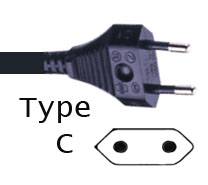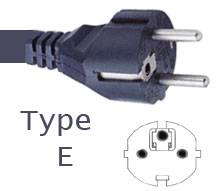French Polynesia is a group of islands in the South Pacific Ocean known for their stunning beauty, turquoise lagoons, and vibrant marine life. From the iconic overwater bungalows of Bora Bora to the rugged landscapes of Moorea and the pristine beaches of Tahiti, French Polynesia offers travelers a tropical paradise like no other. Explore ancient Polynesian culture, indulge in exquisite cuisine, or simply relax on the white sand beaches and soak in the breathtaking scenery. With its warm hospitality, rich history, and unparalleled natural beauty, French Polynesia beckons visitors to experience the magic of the South Pacific.
Ultimate French Polynesia Travel Guide
Best time to go
The best time to visit French Polynesia is during the dry season, which runs from May to October. During this time, the weather is generally warm and sunny, with minimal rainfall and low humidity, making it ideal for outdoor activities and beach vacations. Keep in mind that French Polynesia’s climate is tropical, so temperatures remain pleasant year-round, but cyclones are more likely during the wet season from November to April.
Average Temperature By Month
January: 26°C to 31°C (79°F to 88°F)
February: 26°C to 31°C (79°F to 88°F)
March: 26°C to 31°C (79°F to 88°F)
April: 25°C to 30°C (77°F to 86°F)
May: 24°C to 29°C (75°F to 84°F)
June: 23°C to 28°C (73°F to 82°F)
July: 22°C to 27°C (72°F to 81°F)
August: 22°C to 27°C (72°F to 81°F)
September: 22°C to 28°C (72°F to 82°F)
October: 23°C to 29°C (73°F to 84°F)
November: 24°C to 30°C (75°F to 86°F)
December: 25°C to 31°C (77°F to 88°F)
What To Expect
Time Zone:
French Polynesia operates on Tahiti Time (TAHT), which is 10 hours behind Coordinated Universal Time (UTC-10:00). However, some islands, such as the Marquesas Islands, are in different time zones.
Currency:
The official currency of French Polynesia is the French Pacific Franc (XPF), also known as the CFP Franc. US dollars and major credit cards are widely accepted at hotels, resorts, and tourist establishments, but it's advisable to carry some French Pacific Francs for smaller purchases and when visiting remote areas.
Language:
French and Tahitian are the official languages of French Polynesia, with French being used in government, education, and business. Tahitian, along with its various dialects, is widely spoken among the local population, especially in more remote areas.
Airport:
Faa'a International Airport (PPT) on the island of Tahiti is the main international gateway to French Polynesia. It offers connections to destinations across the Pacific region, Asia, Australia, and North America. Additionally, several domestic airports serve inter-island flights within French Polynesia.
How To Get Around
Inter-Island Flights: Inter-island flights are the most convenient way to travel between the islands of French Polynesia. Air Tahiti operates regular flights to most inhabited islands, offering stunning aerial views of the archipelago.
Ferries and Boats: Ferries and boats provide transportation between some of the larger islands, such as Tahiti, Moorea, Raiatea, and Bora Bora. These services are operated by various companies and offer both passenger and cargo transport options.
Rental Cars and Scooters: Renting a car or scooter is a popular way to explore the main islands of French Polynesia, especially Tahiti and Moorea. Rental agencies are available at airports, ports, and major tourist hubs, offering a range of vehicles to suit different preferences and budgets.
Taxis and Private Transfers: Taxis are available on the main islands of French Polynesia, but they can be expensive, especially for longer journeys. Many hotels and resorts offer private transfer services for guests, providing a convenient and comfortable way to reach your accommodation.
Average Temperature By Month:
January: 26°C to 31°C (79°F to 88°F)
February: 26°C to 31°C (79°F to 88°F)
March: 26°C to 31°C (79°F to 88°F)
April: 25°C to 30°C (77°F to 86°F)
May: 24°C to 29°C (75°F to 84°F)
June: 23°C to 28°C (73°F to 82°F)
July: 22°C to 27°C (72°F to 81°F)
August: 22°C to 27°C (72°F to 81°F)
September: 22°C to 28°C (72°F to 82°F)
October: 23°C to 29°C (73°F to 84°F)
November: 24°C to 30°C (75°F to 86°F)
December: 25°C to 31°C (77°F to 88°F)
Plugs:
French Polynesia uses electrical outlets that are compatible with Type E and Type F plugs. Type E plugs have two round pins, while Type F plugs have two round pins with two earth clips on the sides. The standard voltage is 220 volts AC, with a frequency of 60Hz.
VPN:
While internet access in French Polynesia is generally reliable, using a virtual private network (VPN) can provide added security and privacy, especially when accessing public Wi-Fi networks.
Safety:
French Polynesia is considered a safe destination for travelers, but it's essential to take standard precautions to ensure your safety and well-being. Be mindful of your belongings, particularly in crowded areas and tourist hotspots. When swimming or participating in water activities, heed warnings about strong currents, coral reefs, and dangerous marine life, such as sharks and jellyfish. Additionally, respect local customs and traditions, and seek guidance from locals or tour operators when exploring remote areas or engaging in adventurous activities.
Credit Cards and Banks
Credit Cards:
Credit card acceptance in French Polynesia is widespread, especially in urban areas, tourist destinations, hotels, restaurants, and larger shops. Visa and MasterCard are the most commonly accepted cards, followed by American Express and Discover. However, it’s advisable to carry some cash, especially for smaller purchases or when visiting more remote islands where card acceptance may be limited.
ATMs:
ATMs are available in major towns and tourist areas throughout French Polynesia, particularly on the main islands such as Tahiti and Bora Bora. However, they may be limited on smaller islands, so it’s recommended to withdraw enough cash when you have access to ATMs. Most ATMs will dispense French Pacific Francs (XPF).
Currency Exchange:
The currency of French Polynesia is the French Pacific Franc (XPF). You can exchange major foreign currencies at banks, currency exchange bureaus, and some hotels. US dollars and euros are typically the most widely accepted foreign currencies for exchange.
Banks:
Major banks in French Polynesia include:
- Banque de Polynésie: One of the largest banks in French Polynesia, Banque de Polynésie offers a wide range of banking services including savings accounts, loans, and foreign exchange.
- Banque Socredo: Another prominent bank in French Polynesia, Banque Socredo provides various banking products and services for individuals and businesses.
Traveler’s Checks:
Traveler’s checks are becoming less common, and their usage is limited in French Polynesia. It’s recommended to carry cash or use credit/debit cards for transactions.
Tips for Banking in French Polynesia:
- Notify your bank before traveling to French Polynesia to inform them of your travel plans and avoid any issues with card usage abroad.
- Keep your PIN and card information secure, and be cautious when using ATMs, especially in secluded areas.
- Carry small denominations of French Pacific Francs for smaller purchases, as change may be limited.
- Familiarize yourself with the current exchange rate to ensure fair transactions when exchanging currency.
By understanding the banking system in French Polynesia, you can ensure a smooth and hassle-free financial experience during your travels in the region.
Locations
French Polynesia
TRAVEL FACTS
US State Dept Travel Advisory
The US Department of State currently recommends US citizens exercise normal precautions in French Polynesia.
https://travel.state.gov/content/travel/en/traveladvisories/traveladvisories.html
Passport/Visa Requirements
For the latest passport and visa requirements for this country, please consult the U.S. State Department’s “Learn About Your Destination” search tool, available through the link below.
US Embassy/Consulate
None (overseas lands of France); US citizens may call US Dept of State (202)-501-4444 for emergencies; alternate contact is the US Consulate in Tahiti 689-40-426-535 or Tel:(+689) 40 42 65 35; US Embassy in Suva, 158 Princes Road, Tamavua, PO Box 218, Suva, Fiji
LGBTQIA+ Travelers
Telephone Code
689
Local Emergency Phone
Ambulance: 15; Fire: 18; Police: 17
Vaccinations
The CDC and WHO recommend the following vaccinations for French Polynesia: hepatitis A, hepatitis B, typhoid, yellow fever, rabies, meningitis, polio, measles, mumps and rubella (MMR), Tdap (tetanus, diphtheria and pertussis), chickenpox, shingles, pneumonia, influenza, and COVID-19.
Climate
Tropical, but moderate
Currency (Code)
Comptoirs Francais du Pacifique francs (XPF)
Electricity/Voltage/Plug Type(s)
220 V / 60 Hz / plug types(s): C, E


Major Languages
French, Polynesian
Major Religions
Protestant, Roman Catholic
Time Difference
UTC-10 (5 hours behind Washington, DC, during Standard Time)
Potable Water
Opt for bottled water
International Driving Permit
Suggested
Road Driving Side
Right
Tourist Destinations
Bora Bora (includes Mount Otemanu); Rangiroa (includes Ile aux Recifs); Maupiti (includes Tereia Beach); Moorea (includes Magic Mountain); Tuamotu Islands
Major Sports
Soccer, va’a (outrigger canoe racing), surfing, rugby
Cultural Practices
Tahitians tend to dress up when dining out.
Tipping Guidelines
Many hotels and restaurants include a service charge. It is considerate to leave a little extra for outstanding service. At restaurants that do not add service charges, tip 10% of the bill. Taxi drivers customarily are tipped 10% of the fare.
Souvenirs
Black pearls, mother-of-pearl jewelry and decorative items, pareau cloth, wood and stone carvings, vanilla
Traditional Cuisine
Poisson cru — raw tuna marinated in lime juice and coconut milk and served with various vegetables; often, fresh coconut meat is wrapped in cloth, and the milky juice is then squeezed over the fish and vegetables
Please visit the following links to find further information about your desired destination.
World Health Organization (WHO) – To learn what vaccines and health precautions to take while visiting your destination.
US State Dept Travel Information – Overall information about foreign travel for US citizens.
To obtain an international driving permit (IDP). Only two organizations in the US issue IDPs:
American Automobile Association (AAA) and American Automobile Touring Alliance (AATA)
How to get help in an emergency?
Contact the nearest US embassy or consulate, or call one of these numbers:
from the US or Canada – 1-888-407-4747 or from Overseas – +1 202-501-4444
Central Intelligence Agency.
The World Factbook.
/the-world-factbook
(May 8, 2024)



